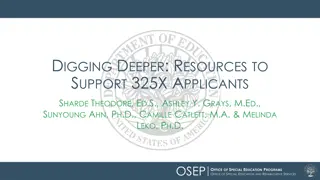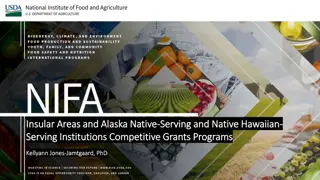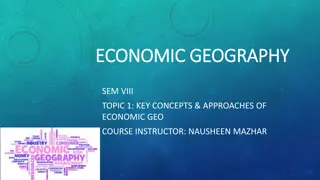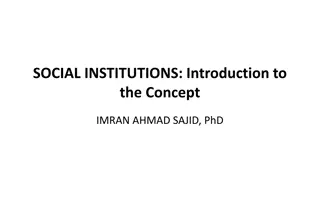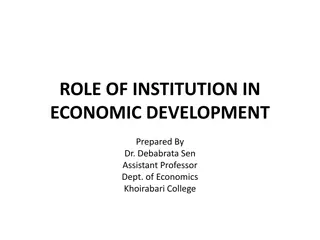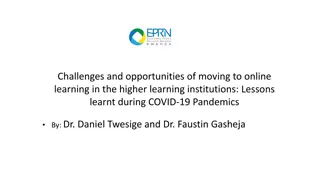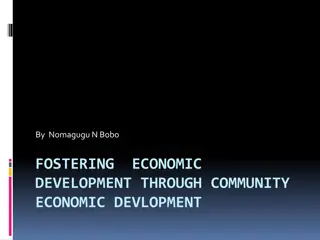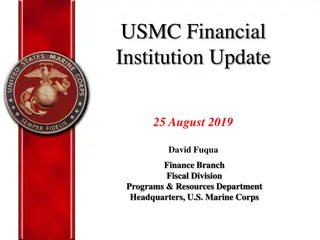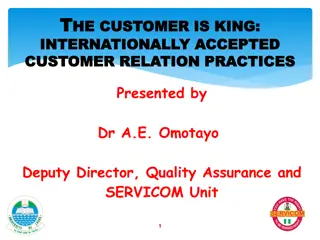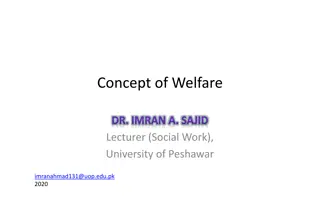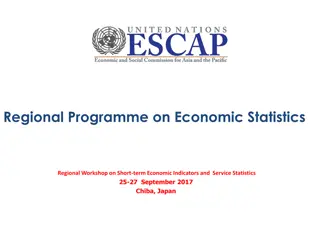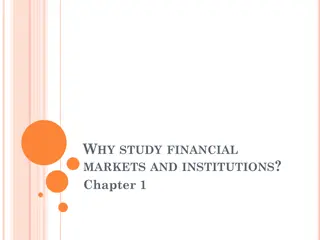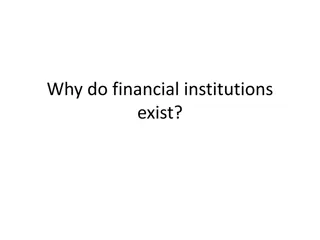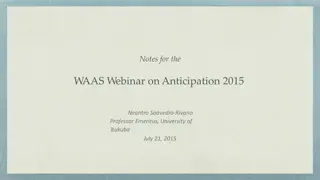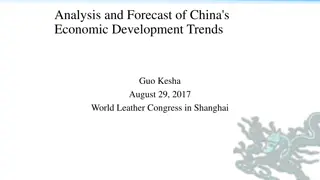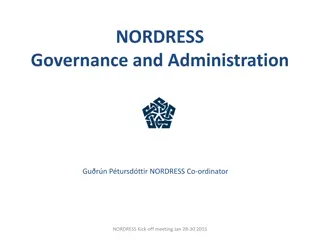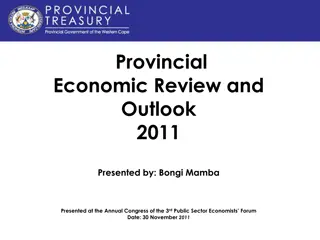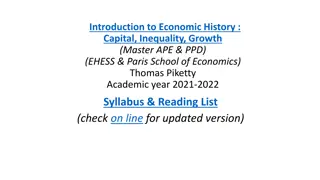Maqasid al-Shariah-Based Performance Evaluation Index for Islamic Social Finance Institutions
This study focuses on developing a performance evaluation index for Islamic social finance institutions (ISFIs) based on Maqasid al-Shariah to better measure their performance beyond just financial aspects. The aim is to analyze how far ISFIs have accomplished Maqasid during their operations through
1 views • 22 slides
Role of Central Banks in International Financial Institutions
Central banks play a crucial role in the interconnectivity with international financial institutions like the Asian Development Bank (ADB) and the International Monetary Fund (IMF). These institutions aim to promote economic and social development, ensure exchange rate stability, provide financial a
1 views • 18 slides
Why must students opt for universities in the U.K. instead of other countries
he United Kingdom is home to some of the world\u2019s most prestigious educational institutions. Oxford, Cambridge, and University College London are exceptional educational institutions. The Q.S. World University Rankings include 76 UK-based institutions.
0 views • 3 slides
MedLink Healthcare Job Posting pdf
\"MedLink is a groundbreaking platform dedicated to connecting healthcare professionals and institutions, transforming healthcare hiring. Our exclusive job platform serves as the ultimate bridge between jobseekers and a wide range of healthcare institutions, including hospitals, clinics, and provide
0 views • 8 slides
Enhancing Diversity in Special Education Programs: A Focus on HBCUs, TCCUs, and MSIs
This collection of resources highlights the importance of increasing diversity in special education programs by supporting Historically Black Colleges and Universities (HBCUs), Tribal Colleges and Universities (TCCUs), and Minority-Serving Institutions (MSIs). The content covers the significance of
1 views • 26 slides
NIFA Competitive Programs for Insular Areas and Alaska Native Serving Institutions
NIFA provides competitive grants for agricultural research, education, and extension programs in insular areas and Alaska Native serving institutions. Topics covered include advanced technologies, food science, animal health, environmental sustainability, business and economy, farming practices, and
2 views • 13 slides
Overview of AANAPISI Program in the United States
The Asian American and Native American Pacific Islander Serving Institutions (AANAPISI) Program aims to support institutions with a minimum of 10% Asian American and Native American Pacific Islander undergraduate enrollment. Currently, there are 54 funded AANAPISI institutions across 16 states and t
0 views • 13 slides
Understanding Institutional Theory and Organizations
Explore the concept of institutional theory, which focuses on the stability and change of institutions and organizations. Learn about institutionalization, deinstitutionalization, and reinstitutionalization, as well as the definitions of institutions and organizations. Discover how institutions like
0 views • 35 slides
Understanding Economic Systems and Basic Questions
Economic systems are the foundation of societies, organizing production and distribution of goods. Three basic questions drive economic systems: what goods to produce, how to produce them, and for whom. Traditional, command, and market economies each address these questions differently, relying on c
1 views • 11 slides
Understanding Key Concepts in Economic Geography
Economic Geography is a sub-discipline that utilizes a geographical approach to analyze the spatial distribution of economic activities at various scales. It focuses on the location of economic activities and their relationship with the environment, encompassing primary, secondary, and tertiary sect
1 views • 20 slides
Understanding Social Institutions: An Introduction by Imran Ahmad Sajid, PhD
Discover the concept of social institutions through Dr. Imran Ahmad Sajid's explanation. Explore how institutions are established practices that shape complex social forms, distinguishing between institutions and conventions, and their relation to society and culture. Delve into the role of institut
0 views • 14 slides
Role of Institutions in Economic Development: A Comprehensive Analysis
Understanding the significance of institutions in economic development is crucial, as they play a pivotal role in shaping societal, political, and economic relations. Institutions, defined as established customs or practices, act as the rules of the game that structure human interactions. Their qual
0 views • 13 slides
Artha Rin Ain 2003: Special Legislation for Financial Institutions' Debt Recovery
Artha Rin Ain 2003 is a special legislation aimed at enhancing the recovery process of outstanding debts of financial institutions in Bangladesh. The law addresses the shortcomings of previous acts and establishes dedicated courts for the swift resolution of cases involving unpaid claims. It encompa
0 views • 15 slides
Challenges and Opportunities of Transitioning to Online Learning in Higher Education Institutions: Lessons Learned from COVID-19
Economic researchers emphasize the role of education in economic development. The COVID-19 pandemic disrupted the education sector, causing a shift to online learning. This study explores the challenges and opportunities of moving from face-to-face to online learning in Rwandan higher education inst
0 views • 14 slides
Efficiency Analysis of Microfinance Institutions in Papua: A Study by Dr. Muneer Babu
Analysis of the performance and efficiency of Microfinance Institutions in Papua New Guinea, focusing on the provision of financial services to the underbanked population. The study evaluates the resource utilization and efficiency of MFIs, comparing less efficient and highly efficient institutions.
0 views • 18 slides
Exploring Core Values in Higher Education Institutions
Unravel the importance of core values in higher education institutions, examining the interplay between organizational culture, decision-making processes, and the alignment of values with faith and professional beliefs. Delve into the diverse types of values, from permission-to-play to aspirational
0 views • 29 slides
Financial Services Institutions Support Value Chain Actors
Financial services institutions play a vital role in supporting various actors within the value chain, including exporters, wholesalers, banks, processors, and non-bank financial institutions. This ecosystem also involves technical training, business support, local traders, private investors, specia
0 views • 30 slides
Fostering Economic Development Through Community Economic Development
Community Economic Development (CED) involves local actions to create economic opportunities improving social conditions, especially for the disadvantaged. It recognizes the interdependence of economic, environmental, and social challenges, emphasizing solutions rooted in local knowledge. The ultima
1 views • 30 slides
Leadership for Building World Class Institutions: A Study on Talent Management and Reputation in Higher Education
Delve into the importance of reputation and talent management in higher education institutions, with a focus on developing global mindsets and strategies for building world-class universities. Insights from key figures in education highlight the evolving landscape and necessity for innovative leader
0 views • 20 slides
USMC Financial Institution Update - August 2019 Summary
The US Marine Corps provided an update on their financial institutions featuring key areas like program management, current issues, and a summary of institutions across different locations. Details include management personnel, the number of installations, types of financial institutions, and recent
1 views • 10 slides
Overview of Transfer with Success Act and Regulatory Changes in Maryland
The Transfer with Success Act, passed in 2021, introduced new requirements for public institutions in Maryland related to credit transfers between institutions. Recent stakeholder work groups and regulatory changes have paved the way for implementing these new regulations, aiming to facilitate smoot
0 views • 23 slides
Customer Relations Practices in Academic Institutions: A Focus on Quality Assurance and SERVICOM at UNILAG
Presented by Dr. A.E. Omotayo, this document explores the importance of customer-centric practices in academic institutions, specifically focusing on Quality Assurance and SERVICOM at the University of Lagos (UNILAG). The purpose is to instill a high level of commitment to vision, mission, and value
0 views • 31 slides
Structural Transition and International Economic Institutions in Post-Independence India
Post-independence India initially focused on state-directed economic development, leading to a sizable public sector. However, in 1991, the country shifted towards a structural adjustment program, embracing liberal imports, market deregulation, privatization, and financial liberalization. This trans
0 views • 10 slides
Analyzing Systemic Climate Risk in the Financial Sector
This study discusses systemic climate risk in the financial sector by examining the effects of climate risks on financial institutions. It aims to design a market-based framework to assess the vulnerability of financial institutions to climate risks and analyze potential contagion effects. The frame
0 views • 39 slides
Global Multistakeholder Institutions: Key Features and Insights
This content focuses on global multistakeholder institutions (MSIs), their key features, stakeholder influence, decision-making dynamics, and typologies. It also explores the involvement of various entities in MSIs and their impact on critical issues such as food systems, planetary health, and marke
0 views • 10 slides
Spanish Institutions Publishing Options Overview
Understand the eligibility criteria and benefits for Spanish institutions under the agreement with Elsevier. Learn how corresponding authors affiliated with Spanish institutions can avail discounts and APC coverage, and the role of institutional librarians in the OA platform. The process from articl
0 views • 17 slides
Understanding Social Institutions and Welfare in Human Society
Social institutions play a crucial role in addressing social problems and meeting the basic needs of human societies. Concepts of welfare and institutions like family, education, economy, and politics are explored. Welfare is described as traveling smoothly on the road of life, derived from the root
0 views • 21 slides
Enhancing Economic Statistics in Asia-Pacific Region
The Regional Programme on Economic Statistics aims to improve economic statistics in the Asia-Pacific region by enhancing capacity and coordination among National Statistical Offices (NSOs) and other stakeholders. The programme focuses on implementing the Core Set of Economic Statistics to facilitat
0 views • 11 slides
Understanding Banking Institutions and Their Types
Banking institutions play a vital role in the financial sector by mobilizing public savings and providing funds to meet various financial needs. Commercial banks, investment banks, co-operative banks, and central banks are some examples of banking institutions. Scheduled banks enjoy certain benefits
0 views • 17 slides
Overview of Economic Policy: From Mercantilism to Present-Day Practices
Explore the concept of economic policy and its importance in achieving economic objectives. Delve into the historical debate on state intervention in the economy and major schools of economic theory like Mercantilism. Understand the emergence of economic policies through economic, political, scienti
0 views • 105 slides
Understanding the Significance of Financial Markets and Institutions
Studying financial markets and institutions is crucial as it facilitates the efficient transfer of funds, promotes economic growth, impacts personal wealth, influences business decisions, and plays a significant role in determining interest rates. Debt markets, including bond markets, enable borrowi
0 views • 15 slides
Understanding Why Financial Institutions Exist
Financial institutions exist to provide crucial services like intermediation, risk management, and facilitating economic activities by connecting savers and borrowers. The global financial structure involves various institutions like banks, insurance companies, and securities markets. Key facts incl
0 views • 45 slides
Anticipatory Approach to Economic Theory - Highlights and Critiques
Critiques of conventional economic thinking include its ahistorical approach, lack of focus on social issues, and uniform policy recipes. An alternative, anticipatory approach to economic theory emphasizes the role of uncertainty in driving change and transforming economic institutions. It explores
0 views • 6 slides
Analysis and Forecast of China's Economic Development Trends - Guo Kesha Presentation
The presentation by Guo Kesha at the World Leather Congress in Shanghai delves into the analysis and forecast of China's economic development trends. It discusses whether a new cycle has opened for the Chinese economy, the potential for an L-type growth platform, and initial research on economic tre
0 views • 22 slides
NORDRESS Project Governance and Administration Overview
The NORDRESS project involves various entities like the Executive Board, Council, Partner Institutions, and Supporting Institutions for day-to-day management, decision-making, and overall support. The Project Manager from the University of Iceland plays a central role, coordinating activities and li
0 views • 13 slides
Economic Review and Outlook 2011: Global Trends and Regional Impacts
The Provincial Economic Review and Outlook for 2011 highlighted the global economic performance and outlook, focusing on factors like GDP growth, employment trends, and socio-economic conditions in the Western Cape region. It discussed the recovery in global economic growth post-2009, with the IMF p
0 views • 29 slides
Understanding Political Institutions and Their Significance in Governance
Dr. R.E.V. Gyampo, a lecturer in the Department of Political Science at UG College of Education, explains the concept of institutions, distinguishing between formal and informal ones. He emphasizes the importance of rules within institutions for predictability and behavior governance. The discussion
0 views • 14 slides
Russian Economic Warfare in Central and Eastern Europe: Challenges and Impacts
Russia employs overt and covert economic warfare tactics in Central and Eastern Europe, including energy blockages and media manipulation. This strategy poses challenges to democratic values and institutions. The study examines the correlation between Russia's economic footprint and democratic stand
0 views • 24 slides
Introduction to Economic History: Capital, Inequality, Growth - Course Overview
This course provides a comprehensive introduction to economic history, focusing on the relationship between capital accumulation, inequality, and growth. It covers topics such as historical evolution of global distribution of wealth, property regimes, and political systems. Emphasis is placed on und
0 views • 19 slides
Insights into Economic Growth Theories and Development Economics
Explore the perspectives of growth theory, foundational literature, general theories of economic progress, implications for institutions, modern development economics, and modern macro growth models with a focus on poverty traps. Delve into topics such as market division of labor, capital accumulati
0 views • 14 slides




